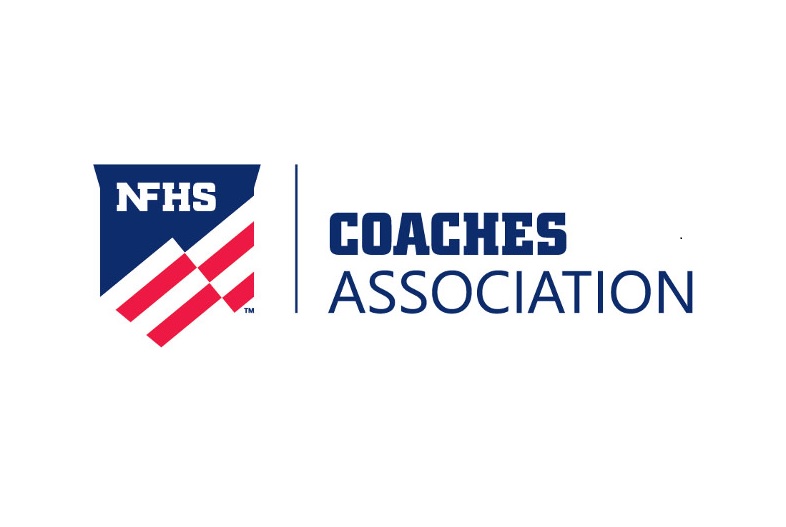
Thank Roosevelt for Football Weekends
December 20, 2013
By Rob Kaminski
MHSAA benchmarks editor
The next time you find yourself immersed in a tense crosstown football rivalry on a Friday night followed by a Saturday pilgrimage to the nearest college campus and a Sunday afternoon with a remote and your favorite snacks and beverages, take a moment to consider what the weekend would be like if it weren’t for Teddy Roosevelt.
The man who became our 26th President shortly after the turn of the 20th Century following the assassination of William McKinley in 1901 was a football fan like you. Maybe more so.
Today’s game of football has reached a critical crossroads. Player size and speed have increased across the board. Savage use of equipment as weapons rather than protective gear has been glorified on television networks and social media. Leaders of the game at all levels have recognized the need for change, employing new rules and widespread educational efforts to aid in preserving the sport.
History, as they say, is repeating itself.
In an ironic twist, it was Roosevelt who saved the then-brutally violent game of football from itself more than 100 years ago. Yes, the same “Rough and Ready Teddy” who led the charge up San Juan Hill during the Spanish-American War and often sparred in the boxing ring while in office from 1901-09 opined that football was becoming so gruesome that he delivered an ultimatum: clean up the game or it would be outlawed.
The Chicago Tribune reported that in 1904 alone, there were 18 football deaths and 159 serious injuries, mostly among prep school players. Football deaths suffered by younger players were reported on a nearly weekly basis, as outraged citizens called on colleges and high schools to banish football outright.
In stepped Roosevelt, who called head coaches and representatives from Harvard, Yale and Princeton – college powers at the time – to the White House in 1905 urging them to eliminate excessive violence and set an example of fair play for the rest of the country. When the casualties actually rose by one during the ensuing season, Roosevelt reacted with greater resolve and convened leading football authorities for the purpose of authoring drastic rules changes. What emerged was an intercollegiate conference which was the predecessor of the NCAA.
Among the most effective changes for the 1906 season were the legalization of the forward pass, the elimination of mass formations, and the creation of a neutral zone. Football fatalities fell to 11 in each of the next two seasons, and severe injuries fell drastically.
Thanks to the introduction of protective equipment and ever-evolving rules changes, football during the 100-plus years to follow has become an exponentially safer game. Yet, the game’s leaders always will need to adjust and react to scrutiny that comes with the territory.
So, as the game once again undergoes rules modifications in the name of safety, give a tip of the cap to President Roosevelt while you enjoy college bowl season and the NFL playoffs and begin to think ahead to the first high school practice of 2014.

3 Michigan Leaders Earn NFHS National 'Coach of the Year' Honors
By
Geoff Kimmerly
MHSAA.com senior editor
January 18, 2022
Three Michigan high school varsity coaches have been recognized among 23 National Coaches of the Year for 2020-21 by the National Federation of State High School Associations (NHFS) Coaches Association.
Ann Arbor Pioneer girls swimming & diving coach Stefanie Kerska, Bronson volleyball coach Jean LaClair and DeWitt football coach Rob Zimmerman were selected by a committee including representatives from all eight NFHS sections – Michigan is part of Section 4 with Illinois, Indiana, Iowa and Wisconsin.
The following brief bios includes an excerpt from each honoree’s coaching philosophy, which nominees were asked to submit after being identified as candidates for the awards.
 Stefanie Kerska took over both the Ann Arbor Pioneer girls and boys swimming & diving programs during the 2014-15 school year, and she has led the girls to the last two Lower Peninsula Division 1 Finals championships; her 2020 team doubled up the runner-up’s score with 368 points, and this fall’s team climbed even higher with 405.5 points at the season-ending meet. She also led the girls team to a runner-up Finals finish in 2019 and the boys team to last season’s LPD1 Finals championship. Kerska previously served as an assistant coach at University of Michigan from 1997-2012 and on the USA Swimming national team staff from 2008-16. She remains active with USA Swimming, the FINA Swimming Development Team and as a presenter for the Summit for Empowering Women in Swim. She was named the Michigan Interscholastic Swim Coaches Association Coach of the Year for both Division 1 girls and boys during the 2020-21 school year.
Stefanie Kerska took over both the Ann Arbor Pioneer girls and boys swimming & diving programs during the 2014-15 school year, and she has led the girls to the last two Lower Peninsula Division 1 Finals championships; her 2020 team doubled up the runner-up’s score with 368 points, and this fall’s team climbed even higher with 405.5 points at the season-ending meet. She also led the girls team to a runner-up Finals finish in 2019 and the boys team to last season’s LPD1 Finals championship. Kerska previously served as an assistant coach at University of Michigan from 1997-2012 and on the USA Swimming national team staff from 2008-16. She remains active with USA Swimming, the FINA Swimming Development Team and as a presenter for the Summit for Empowering Women in Swim. She was named the Michigan Interscholastic Swim Coaches Association Coach of the Year for both Division 1 girls and boys during the 2020-21 school year.
“Athletics starts with a belief in belonging and making every team member feel safe and valued. Teammates should depend on coaches and each other for support, guidance and motivation to be the best they can be. Athletics should create an environment where effort, attitude and dependability are valued and required for success. It is often said that athletics builds character. I, however, believe it reveals it.”
 Jean LaClair ranks fourth in Michigan high school volleyball coaching history for varsity victories with a record of 1,289-398-99 having led Midland Dow from 1988-90, Pinconning from 1997-99 and Bronson beginning with the 2000-01 winter season. She’s coached Bronson to five MHSAA Finals championships – including four straight in Class C/Division 3 from 2015-18 – and her last two teams have reached the Division 3 Quarterfinals and Regional Semifinals, respectively. She is a longtime executive board member of the Michigan Interscholastic Volleyball Coaches Association and has served as president, and was a 2017 inductee to the Michigan High School Coaches Association’s Hall of Fame. She also serves as Bronson’s athletic director and has received both the MHSAA’s Women In Sports Leadership Award and Allen W. Bush Award.
Jean LaClair ranks fourth in Michigan high school volleyball coaching history for varsity victories with a record of 1,289-398-99 having led Midland Dow from 1988-90, Pinconning from 1997-99 and Bronson beginning with the 2000-01 winter season. She’s coached Bronson to five MHSAA Finals championships – including four straight in Class C/Division 3 from 2015-18 – and her last two teams have reached the Division 3 Quarterfinals and Regional Semifinals, respectively. She is a longtime executive board member of the Michigan Interscholastic Volleyball Coaches Association and has served as president, and was a 2017 inductee to the Michigan High School Coaches Association’s Hall of Fame. She also serves as Bronson’s athletic director and has received both the MHSAA’s Women In Sports Leadership Award and Allen W. Bush Award.
“High school athletics should be a lifelong, fun experience for our student-athletes where they learn what it takes to be a part of a team, what it means to work hard for the team. Those who play competitive spots in high school demonstrate more confidence, leadership and self-respect. They learn to set goals and manage their time! They have a better appreciation for diversity and a more developed sense of morality. These are all reasons why athletics are important, and I love working with our kids to make them better leaders for the community and world.”
 Rob Zimmerman led DeWitt to the last two Division 3 championship games and the Panthers’ first MHSAA Finals title to cap the 2020 season with a 12-0 record. He’s built a 241-67 record coaching DeWitt’s varsity since 1999 after previously coaching the varsity at Cedar Springs from 1996-98. He also has served as a head varsity track & field coach and middle school wrestling coach during his tenure in school sports, and he has served as both a regional director and on the executive board for the Michigan High School Football Coaches Association. His teams total have played in six MHSAA Finals, to go with 19 league, 14 District and 12 Regional titles during his 23 seasons at DeWitt. He has five times received statewide Coach of the Year recognition from The Associated Press, and in 2020 was named the state Dream Team Coach of the Year by both the Detroit Free Press and MHSFCA and state Coach of the Year by the MHSCA and Detroit Lions.
Rob Zimmerman led DeWitt to the last two Division 3 championship games and the Panthers’ first MHSAA Finals title to cap the 2020 season with a 12-0 record. He’s built a 241-67 record coaching DeWitt’s varsity since 1999 after previously coaching the varsity at Cedar Springs from 1996-98. He also has served as a head varsity track & field coach and middle school wrestling coach during his tenure in school sports, and he has served as both a regional director and on the executive board for the Michigan High School Football Coaches Association. His teams total have played in six MHSAA Finals, to go with 19 league, 14 District and 12 Regional titles during his 23 seasons at DeWitt. He has five times received statewide Coach of the Year recognition from The Associated Press, and in 2020 was named the state Dream Team Coach of the Year by both the Detroit Free Press and MHSFCA and state Coach of the Year by the MHSCA and Detroit Lions.
“In an ever-changing world that poses more social and emotional challenges for young people than ever before, systems that can provide a foundational support and teach high levels of collaboration, discipline, accountability and relationships are more important that ever. Athletics provides young people the opportunity to foster and cultivate these key traits that are crucial for their development. For future success, students need to be equipped to handle a variety of diverse situations and work with a variety of diverse people. This is sports at its core.”
Rockford wrestling coach Brian Richardson was honored in Section 4 after leading the Rams to the Division 1 Semifinals and a 20-4 record.
The NFHS has been recognizing coaches through an awards program since 1982.

